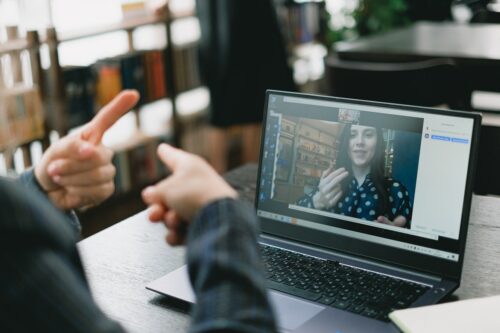
Wellbeing
15 October 2021There are around 7 billion of us on the planet, no one knows the exact number, it’s dynamic and ever changing. So how can one person make a difference? Well the answer is surprising, it’s the truth that it is always one person that makes a difference, they start something, and from there it grows.
You may think to yourself, yeah, sure but those peope were rich and famous or powerful. Some sure, yet for the most part they were not, at least not to begin with. Think of some recent examples – easy ones like Nelson Mandela – he spent decades in jail before becoming the president of South Africa. Ghandi, wandered around India giving his things away, yet is seen as the father of passive resistance. Mother Theresa, a nun in Calcutta, yet bestowed with sainthood. Sure Jeff Bezos, Elon Musk, Bill Gates are rich and famous – yet what have they done compared to other historical figures? Who do you call to mind when you think of a great humanitarian – Kofi Annan, or Jack Welch?
If we look at it another way – Albert Einstein, Paul Dirac, Erwin Schrodinger, Brian Cox – All are well known and have made huge contributions to the work of Physics – They are not alone, there are many many more. Bruce Lipton, Kate Rawworth, Kelly Noonan-Gores, Deepak Chopra in spirituality and health – Yes, some are well known – Now. Yet they started off life unheard of – how many of you know Eknath Eswaran? Yet his contribution is marked.
In the later part of the 20th century research was done on “wellbeing”, in particular conscious attention and focused thought – it was done in the context of healing and social change. The question was broadly speaking – “Can we change things just by sheer force of willpower?“ In selected towns and cities groups were formed to meet at certain times and focus on a particular problem or desired outcome, and then, the scientists measured the results. Sounds easy, yet the complexity and the double blind requirements make this a big task. Even so the results were amazing. In areas where the experiments took place, even allowing for times of day, seasonality, gender and age. The scientists detected a variance in crime figures, employment mood, “Happiness” and lower vists to Emergency Rooms – when the experiment stopped the levels returned to ‘normal’ – that is crime increased again, more people went to hospital, the business outlook and job prospects looked more gloomy.
Lynne McTaggart – undertook her intention experiment and latterly the ‘Power of 8’ along the same lines, and has, as she describes in her book, seen similar results. One of the most amazing things about all these experiments is that not only did they show statistically significant effects, yet they also resulted in a key question being asked and answered. “How many people does it take to make a difference?” The answer is surprisingly small. Take a given population (P) and work out 10%, take the square root of that number. That’s your minimum. So for example a population in a city of say 1 million people the answer is 100 people. For a global population of 6 billion, it’s closer to 8,000. Now that may seem a very small number on a global basis, unbelievable even – but how does that help on an individual basis?
Imagine you have a friend who is unwell – you and a group, let’s say 8 of you, get together and focus each day for 20 minutes on a positive outcome, you agree the intent and the time, you focus and believe in the postive outcome. Know how many of you truly need to believe in that outcome to make it real? – 0.9 of you.
Now you can’t get 0.9 of a person so the answer must be 1. If just one of you truly believes the postive outcome has happened and is real – then that person can make a difference. I admit, the truly believing part is hard, we are humans and have doubts, we can convince ourselves of the worst outcome rather then the best, that’s a survival trait and the reason “Proof” is so hard to come by. Yet the question at the top of this piece was this – can one person make a difference?
Yes, and a significant one. You can make a difference. To do so focus your intention and truly belive in the outcome as though it has already happened. A note of caution though, focus and the law of atttraction are mute, if your focus is on a negative outcome, you have the power to manifest that too. That’s the really hard part, select a positve, and beleive in it, keep the belief and it will happen. Each time we waver and divert ourselves we push the outcome down the road, that reinforces our belief that it won’t really happen and so becomes self fulfilling. Find a way to push doubt from your focus – That is the secret written in plain sight and why science finds proof hard. Science demands empirical evidence and repeatability. The empirical evidence may be easy to collate, the repeatability is exceptionally difficult.
Start small, believe today you will have a good day, and whatever happens keep believing it. look back tomorrow and see how you were right, then move on to some thing a little larger.
Recent Comments (2 Comments)
You must be a member of this site and logged in to leave a comment.